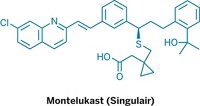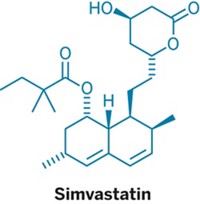Advertisement
Grab your lab coat. Let's get started
Welcome!
Welcome!
Create an account below to get 6 C&EN articles per month, receive newsletters and more - all free.
It seems this is your first time logging in online. Please enter the following information to continue.
As an ACS member you automatically get access to this site. All we need is few more details to create your reading experience.
Not you? Sign in with a different account.
Not you? Sign in with a different account.
ERROR 1
ERROR 1
ERROR 2
ERROR 2
ERROR 2
ERROR 2
ERROR 2
Password and Confirm password must match.
If you have an ACS member number, please enter it here so we can link this account to your membership. (optional)
ERROR 2
ACS values your privacy. By submitting your information, you are gaining access to C&EN and subscribing to our weekly newsletter. We use the information you provide to make your reading experience better, and we will never sell your data to third party members.
Neuroscience
Non-addictive opiate-like compounds may help treat narcolepsy
Chronic morphine treatment in mice restored a narcolepsy-related deficit in the brain, decreasing symptoms
by Cici Zhang
June 29, 2018
| A version of this story appeared in
Volume 96, Issue 27
Narcolepsy is a neurological condition featuring sudden bouts of sleep and muscle weakening that disrupt patients’ everyday function. Current treatments have unpleasant side effects. People with narcolepsy lack a wakefulness peptide known as hypocretin in their brains, but no drugs exist to replace this missing compound. Now, a team led by Jerome Siegel at the University of California, Los Angeles, has demonstrated that 14 days of morphine treatment restores the number of hypocretin-producing neurons in mice with a condition mimicking narcolepsy, rousing the animals and reducing their muscle weakening (Sci. Transl. Med. 2018, DOI: 10.1126/scitranslmed.aao4953). The researchers say that rather than morphine, which is an opiate, nonaddictive opiate-like compounds may be used to treat narcolepsy one day, but more work is needed. The team pursued this line of research because earlier, they had found that brains from people who use heroin chronically had 54% more hypocretin neurons on average than the control group. That finding suggests there might be a link between the hypocretin system and opioid addiction, Siegel says.





Join the conversation
Contact the reporter
Submit a Letter to the Editor for publication
Engage with us on Twitter